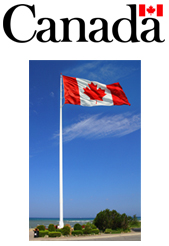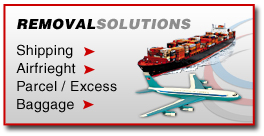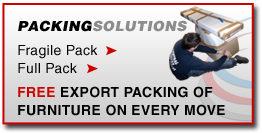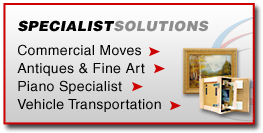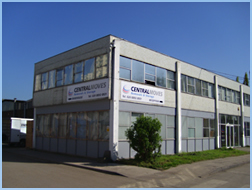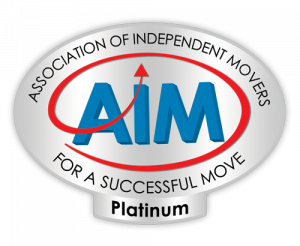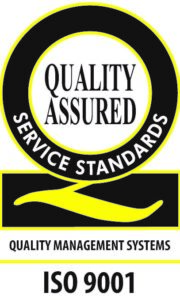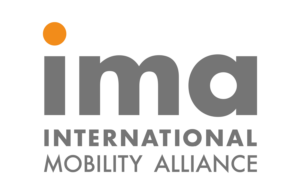Like every other country, Canada has its own particular requirements and local regulations that need to be adhered to in order to avoid potential delays and costs in the customs clearance process. Canadian Customs’ clearance of any goods generally requires the importer to be present in person. If you wish to enter Canada, there are documents you must have in order to cross the border. Without these documents, you will not be allowed into Canada. You may also need many of the other documents listed below. You may wish to have your important documents translated into English or French before arriving to make it easier for people in Canada to understand them.
ESSENTIAL DOCUMENTS
To enter Canada, you will need to present the following:
- A Canadian immigrant visa and Confirmation of Permanent Residence for each family member traveling with you
- A valid passport or other travel document for each family member traveling with you
- Two (2) copies of a detailed list of all the personal or household items you are bringing with you
- Two (2) copies of a list of items that are arriving later and their money value.
Do not pack these documents in your luggage. Keep them with you at all times.
Before you arrive, you should prepare two copies of a list (preferably typed) of all the goods you intend to bring into Canada as settler’s effects, showing the value, make, model and serial number, if the item has one. Divide the list into two sections: the goods you are bringing with you and the goods to follow.
Present this list to the border services officer on your first point of arrival in Canada, even if you are not bringing in any goods at that time. You can make the process easier by completing a B4 form in advance and presenting it to the officer when you arrive.
Visit the Canada Border Services Agency website to download a copy of the Form B4, Personal Effects Accounting Document.
DISCLOSURE OF FUNDS
If you are carrying more than CDN $10,000, tell a Canadian official when you arrive in Canada. If you do not tell an official, you may be fined or put in prison. These funds could be in the form of:
- Cash
- Securities in bearer form (for example, stocks, bonds, debentures, treasury bills)
- Negotiable instruments in bearer form (for example, bankers’ drafts, cheques, travelers’ cheques or money orders)
Find out more about your responsibilities to disclose funds either before you leave or once you arrive in Canada.
HEALTH DOCUMENTS
Children in Canada are vaccinated—also called immunized—beginning when they are newborns. Vaccinations help to prevent serious infections or diseases. When you travel to Canada, bring official documents that state what vaccinations you and your family have already had. If you or your child has not been vaccinated, call your doctor or local public health clinic right away. In Canada, immunization or vaccination records are required for children to enroll in school.
OTHER DOCUMENTS YOU MAY NEED:
- Birth certificates or baptismal certificates
- Marriage certificates
- Adoption, separation or divorce papers
- School records, diplomas or degrees for each family member traveling with you
- Trade or professional certificates and licences
- Letters of reference from former employers
- A list of your educational and professional qualifications and job experience (for your résumé)
- Driver’s licence, including an International Driver’s Permit and a reference from your auto insurance company
- Photocopies of all essential and important documents, in case the originals get lost (be sure to keep the photocopies in a separate place from the originals)
- Car registration documents (if you are importing a motor vehicle into Canada)
CUSTOMS DECLARATION CARD
Before you arrive in Canada, you may be asked to complete a Customs Declaration Card. You must complete this card before you meet with customs and immigration officials, even if you are not a Canadian citizen. If you are traveling by air, it is a good idea to complete the card before you leave the airplane.
WHAT TO DECLARE – Use the Customs Declaration Card to declare the following:
- Any items that you must pay duty on, including alcohol, tobacco and gifts that you are bringing in to Canada.
- Any business goods, plants, food, animals, firearms or other weapons that you are bringing into Canada.
- Any amount of money more than CDN $10,000 that you are bringing into Canada.
Do not use this form to list the personal and household goods that you are bringing with you or are following you to Canada. You will show your lists of those items separately to a customs officer.
For more information, contact the Canada Border Services Agency.
IMPORTING VEHICLES
Motor vehicles imported into Canada cannot be licensed unless they have been cleared by customs. Used second hand vehicles other than of the current year’s manufacture are generally prohibited. Canada Customs will examine all vehicles at the port of entry, at a cost of approximately C$75 + dock handling charges.The vehicle must be completely clean and free of soil. Load it last into the container, so it can be removed easily for the inspection. If you are entering Canada on a temporary visa, you may import a vehicle that does not comply with Canadian standards, but you cannot sell it, and it must be exported out of Canada when the visa terminates.
To be certain that your vehicle will be allowed into Canada, click here to check on the Transport Canada website, telephone 1-613-998-8616 or fax: 1-613-998-4831.
USEFUL CONTACTS
Canadian Embassy London, MacDonald House 1 Grosvenor Square London W1K 4AB 0207 258 6600 www.canadainternational.gc.ca/united_kingdom-royaume_uni/index.aspx
English Embassy, Ottawa 80 Elgin Street Ottawa Ontario K1P 5K7 +1 (0) 613 237 1530 www.ukincanada.fco.gov.uk/en/
Canadian Customs +1 (0) 204 983 3500 www.cbsa-asfc.gc.ca/menu-eng.html
Additional helpful websites:
Immigration Canada:
Additional Information
ELECTRICITY – The electrical supply in Canada is 100 volts. Domestic appliances from the UK will not work/operate in Canada without a transformer.
The Broadcasting system in Canada is not compatible with the system in the UK, and therefore televisions, DVD players and video recorders will not function in Canada.
MOBILE TELEPHONE – Digital PCS (1900MHz) services area available in and around major centres, while older analogue and digital cellular networks are available in less populated areas.
A ‘dual mode’ handset is required outside the digital service areas. Network operators include Bell Mobility (www.bellmobilty.ca), Telus Mobility (www.telusmobility.com) and Rogers AT&T (www.rogers.com).
GSM NETWORK OPERATOR – Microcell (www.canadagsm.com)
INTERNET – ISPS include Inter.net (www.ca.inter.net) and Sympatico (www.sympatico.ca). There are internet cafes all over the country. Internet terminals are usually available at airports and in photocopy shops.
GMT – 4 hours in Halifax – 5 hours in Toronto – 6 hours in Winnepeg – 7 hours in Edmonton – 8 hours in Vancouver
CANADIAN STATE DIALING CODES – International Dialling Codes: +1 (followed by local code – 604 for Vancouver, 416 for Toronto, 613 for Ottawa, 902 for Halifax)
——————————————————————————————————————————————–

